|
Links:
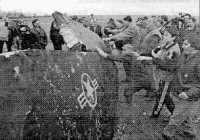 |
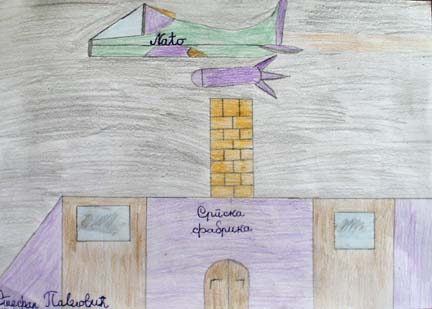 |
 |
 |
 |
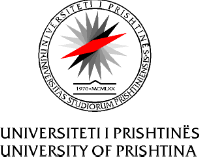 |
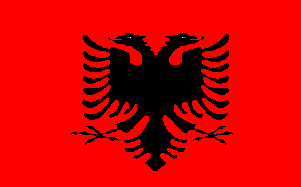 |
| kosova.com |
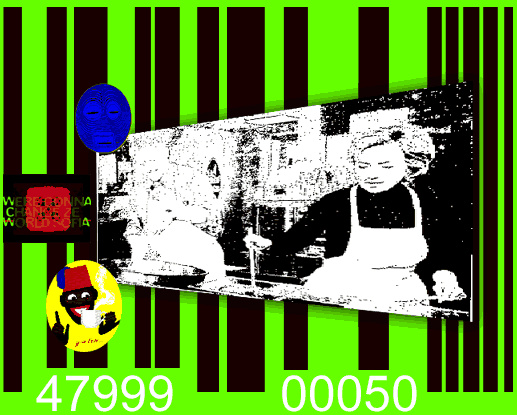 PLANET GENERATION GLOBAL MOVE- JOIN the on-line Forum and live on 16 April 1999
Hosting: the Web Bar in Paris PLANET GENERATION GLOBAL MOVE- JOIN the on-line Forum and live on 16 April 1999
Hosting: the Web Bar in Paris
|

|
Internet for Kosovo
Kosovo on Internet
- Kosova Internet Project (IPKO) - a non-profit wireless Internet service provider; an initiative of the International Rescue Committee (IRC)
- Tetov@ Network
- KFOR On-line
- Albanian Ministry of Information
- Crisis or Stability in the Balkans - a conference of regional leaders hosted by the United States Institute of Peace on April 23, 1999 - midway through the NATO's war against Yugoslavia
- Transatlantic Relations In the Aftermath of Kosovo - a special report by USIP
- Rebuilding Kosovo -- World Bank [.pdf]
- Beastie Boys for Kosovo
- Serbian emigrees for peace in the Balkans
- Statement of Women in Black after the protest against the NATO war; London, April 1999
- Adem's Cross by Alice Mead, Published in 1996 by Farrar Straus and Giroux
- NATO claims victory over Yugoslavia: the list of destroyed "assets". The facts are less boisterous, however: in 79 days number of aircraft used in the raids swelled from 12 to 1100 and the costs of the operation exceeded the entire Russia's '99 military budget. Nevertheless, of 220,000 bombs only 13 hit Yugoslav tanks (by admission of Yugoslav authorities), leaving Milosevic with almost untouched ground forces. Actually, NATO troops in Kosovo so far found only 3 (three) destroyed T-55 tanks - one of which we saw repeatedly on CNN the day NATO moved in. It seems that Americans are as happy to have shot down a single museum bound T-55 as Serbs were when they shot down the F-117. You can try your own combat simulation at Jane's Combat Simulations (maybe one day you make a good NATO general).
- Serbian draft resisters abroad: during the air-campaign against Yugoslavia, NATO dropped thousands of leaflets over Serbia encouraging people to leave Yugoslav Army - now when they left they are left to their own devices and they can't go back.
- MACEDONIA REPORT - Photoessay of visit to Skopje and other places in Macedonia from June 10
- July 2, 1999. Pictures from Alternatives to Violence workshops, Stankovitch and Cegrane Kosovar deporte camps, anti-war rallies, and more. Updated July 9, 1999 (Quakers)
- what-if scenarios for war in Kosovo - cognitive maps
- World Socialist Forum - opposing NATO air strikes (you bet - with the "socialist": in the name...)
- The other (darker) side of the recently glorified Austro-Hungarian empire - I included this link given the recent Hungarian NATO membership, and the de-based articles in the U.S. media written by authors unfoundedly fascinated with either Austro-Hungarian or Ottoman empires as the prospective models for the rule over the Balkans
- Translators needed for Kosovo Albanian refugees arriving to the United States
- The Albanian Web-Ring
- CNN
- MSNBC
- MSF - Medecins Sans Frontieres - Doctors Without Borders in Yugoslavia; MSF is 1999 Nobel Peace Prize recipient
- WITNESS KOSOVO PROJECT
- Mother Jones - Mojo Wire Kosovo Coverage
- FREE ALBIN KURTI AND OTHER KOSOVARS FROM SERBIAN PRISONS NOW!
- PETITION FOR THE RELEASE OF ALBANIAN POLITICAL PRISONERS HELD IN SERBIA
- Adem Demaci (KLA) visiting Father Sava
at the Orthodox Monastery of Decani
Picture &169;1998 AP - Darko Vojinovic
- On destruction of cultural heritage in Kosova and Serbia during and after the NATO bombing
- A vigil to stop the violence in Kosovo/a in New York, March, 11, 1998 in fromt of Yugoslav U.N. mission
- Stop The Killings in Kosova - advertising campaign
- Kosovo Refugees in Macedonia - Photo Exhibit: a Friends Of Bosnia site
- James Foley Off Camera on March 10, 1998 about Kosovo question
- No a la Guerra
- Balkan Witness - first hand reports from Kosovo by Peter Lippman
- Not Worth Dying For... - a startling report by the West Point military professors questioning the morality of the NATO air campaign over Kosovo and ethics of American politics of war in general
- Last News about Kosovo: Infoseek News - Reuters News Service
- Kosovo Internet Guide on conflict and ethnicity by INCORE
- Albanian and Kosovo Independent Media
- Kosovo On-Line via Beta Press Agency
- Warning about the threats against independent media in Serbia because of their treatment of Kosovo crisis
- Reporters sans frontières letter to Slobodan Milosevic protesting his crackdown on Serbian independent media (in French); in English by IFEX
 A rap song for Slobodan Milosevic by C.L.F. (during the war in Croatia, 1992) A rap song for Slobodan Milosevic by C.L.F. (during the war in Croatia, 1992)
- Initiative to bring Nelson Mandela as a mediator to Kosovo Crisis
- The compilation of the most distasteful anti-Serb postings on the Usenet newsgroups
- ...and another one: here you can vote to NUKE the Serbs - this page received over 8 million hits and 3/4 of visitors voted to drop the bomb... sick.
- On NATO disunity
- Serbian section of The Balkans Pages
- Helsinki Citizens Assembly Statement calling for international peace-keeping force to be sent to Kosovo now
- Human Rights Watch appeal to the War Crimes Tribunal to prosecute crimes in Kosovo immediately.
- War Crimes Tribunal reaction on the situation in Kosovo
- Kosovo Human Rights Report by Gesellschaft fuer bedrohte Voelker - Society for Threatened Peoples based upon reports from Kosovo Council on the Defense of Human Rights and Freedoms
- International Crisis Group - Kosovo Briefing
- International Crisis Group - Kosovo, Montenegro, Bosnia, East Timor, Rwanda, Cambodia follow-up
- International Crisis Group - Visible Hand - Kosovo Summary
- War Resisters' International STATEMENT ON WAR IN KOSOVO/A at its Triennial conference in Porec, Croatia, 20-26 September 1998
- LET THE SUNFLOWERS BLOSSOM AGAIN !!!!
- Writer Alan Folgelquist has recently completed a major update of the Eurasia
Research Center Balkan pages, including a new Kosova Crises News section.
- Comunique from the Sandjaki Refugee Center
- Roma community affected by the Kosovo war
- Women's World letter to New York Times
- Save The People Of Kosovo action by Croatian Relief Services, Inc.
- AGAINST THE DOUBLE BLACKMAIL by Slovenian author Slavoj Zizek, questioning both Milosevic and NATO. Shorter version. Post-bombing note.
- Transnational Foundation Statement
- Call upon our conscience by an ex-Yugoslav American scholar Bogdan Denitch (in Croatian/Bosnian/
Serbian)
- Peacenet Balkans Desk take on bogdan Denitch
- A case for preventive intervention by Shkelzen Maliqi (in Croatian/Bosnian/
Serbian)
- Women in Black are alone marching in Belgrade against violence in Kosovo
- Students Independent Union Of The University Of Prishtina Statement
- Truth In Media site by Bib Djurdjevic - insider photos of MIG-29 wooden dummies that Serbs used to fool NATO pilots!
- Official Serbian views on Kosovo crisis
- kosovo.net - Serbian view of Kosovo crisis
- Serbian Unity Congress on Kosovo
- Serbs questioning sincerity of alleged NATO goals for Kosovo
- Americans questioning sincerity of alleged NATO goals for Kosovo
- An attempt to understand NATO action in Yugoslavia by Ben Works
- An attempt to understand NATO action in Yugoslavia by David Steele
- Having trouble finding mass graves in Kosovo? Try Bosnia!
- Vojvodina may be next
- Vote for Vuk
- DOMOVINA - multimedia real-audio and real-video streams with fresh news from Kosovo
- Milosevic plots the next war: Montenegro
- Kosovo Liberation Army web page on Mario's Cyberstation
- Contact Group Statement on Kosovo on Mario's Cyberstation
- US Congress on Kosovo on Mario's Cyberstation
-
Kosova Information Center Daily Reports
- Kosovo Privacy Projecf: anonymous e-mail to and from Kosovo
- KOSOVO & YUGOSLAVIA: LAW IN CRISIS ... a presentation of JURIST: The Law Professors' Network
- ABC News has an article on the intelligence sensors being used
to "monitor" Serbian compliance with their agreement to withdraw from
Kosovo.
- Students' Protests in Kosova
- Kosova
- Prishtina Link
- Dr. Barend Cohen's page about Kosova
- The Three Acts of Kosova Tragedy
- Other Balkans links
|
|
March 1998
"We gave everyone in the town a chance to leave," said the Serb police major, responsible for sacking the village of Prekaz in Kosovo province (Chris Hedges, New York Times, 03/09/98). Doesn't this sound just too familiar? Didn't Ratko Mladic, commander of Serb forces that overrun Srebrenica in summer 1995, said something similar about "giving everyone in town of Srebrenica a chance to leave?"
So, if Bosnian Muslims and Kosovo Albanians volunteered to abandon their homes and possessions, rubber-stamping the Serbian policies of "ethnic cleansing," their lives would be generously spared.

"Solution lies in dialogue," said the boss of above-mentioned police major. Doesn't this sound all too familiar, too? Serbian interior ministry reports 200 terrorist attacks since 1991 on Kosovo. However, the UCK (KLA: Kosovo Liberation Army) is around only for somewhat more than a year - benefiting mostly from a spin-off of smuggled AK rifles and other weapons looted from Albanian military during the recent upheavals in Albania (650,000 rifles were looted), and the Serb's loss of the Drenica region to KLA is just a few months old. Actually, Kosovo Albanian leaders shunned from armed struggle hoping for and continuously asking for dialogue in the past ten years. One of the reasons why Ibrahim Rugova, the leader of largest political bloc among Kosovo Albanians, lost so much support among his people lately, is his stubborn adherence to dialogue. As it did in Bosnia, Serbian regime again declares it's willingness for a dialogue, while in reality blocks any initiative that could lead to one. Fehmi Agani, one of the leading Albanian cause spokesmen said for B92 that the sudden Serbian government call for a dialogue, after they massacred women and children, is unearnest.
 As they claimed in Bosnia that Bosnian Muslims shelled Sarajevo themselves, I've just heard Yugoslav ambassador in Zagreb saying that Kosovo kids were killed by Kosovo terorist leaders not wanting them to escape and
give their positions. Other events confirm the use of the same tactics that Serbia used in Bosnian and Croatian wars:
As they claimed in Bosnia that Bosnian Muslims shelled Sarajevo themselves, I've just heard Yugoslav ambassador in Zagreb saying that Kosovo kids were killed by Kosovo terorist leaders not wanting them to escape and
give their positions. Other events confirm the use of the same tactics that Serbia used in Bosnian and Croatian wars:
- Serbs again refuse to let international humanitarian organizations (as reported by ICRC) through to help care about refugees and displaced persons,
- they refuse international mediation (Albanian leader Azem Vlassi suggested European envoy Felipe Gonzales) in the dialogue and
- they disallow peaceful protests as they turned away Prishtina women that attempted a march on Drenica carrying a loaf of bread each.
In fact, nobody in Serbian government and, which is more sad, in Serbian political opposition, ever seriously thought about opening a dialogue with Kosovo Albanians. After all, neither did Russians ever consider a dialogue with Chechens, nor had the French been willing to accept a dialogue with Algerians, while Brits just recently, and only under the U.S. pressure, sat at the same table with Shin Fein's Garry Adams. Serbia behave as any other colonial power, which made Albanians in Kosovo learn their lesson: dialogue is futile. Nobody would listen to their case until the world media started reporting on the existence of KLA.
European powers are poorly equipped to deal with this crisis: Russians do not want to see Kosovo in Albanian hands, because that would spark a precedent for the situation in Chechenya; England perhaps see the similarity between KLA and IRA; France didn't give up Algeria without a fight, so it should show some understanding for Serbia today. In fact, currently the Serbian minority in Kosovo is smaller than French minority was in Algeria before that war, that France defended in front of the world community as the "internal French question." Doesn't that sound awfully familiar, too?
European powers reluctance to act against the fellow colonialist power already created one very bloody debacle for the international community: Bosnia. It is, therefore, imperative now, in the case of Kosovo, to act immediately and preventively. Check here the latest from State Department, U.S Congress and Contact Group on that issue. Human Rights Watch suggested that International War Crimes Tribunal should start prosecuting crimes against humanity in Kosovo holding Belgrade authorities liable for them, and the Tribunal said that it might do just that. Helsinki Citizens Assembly called upon sending peace-keepers to the region when there is still some peace to be kept. Society for Threatened Peoples (Gesellschaft fuer Bedrohte Voelker) wrote a report on recent human rights abuses in Kosovo by Serbian police with an emphasis on arbitrary detentions, interogations and beatings of Albanians who have relatives living and working in Germany. Sanjaki Refugee Center, comprised of Muslims "ethnically cleansed" from Serbian region of Sandjak, warns about the "next" war.
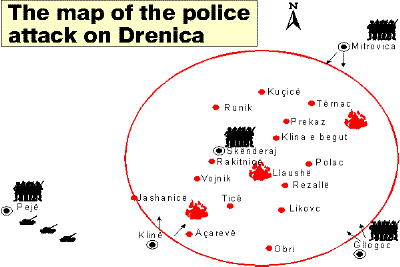
Indeed, Slobodan Milosevic, the president of Yugoslavia, is in a search of new war. Not unlike Saddam Hussein, he cannot politically survive without permanent internal instability. First he allowed that instability in Montenegro, now it is Kosovo. Soon he'd be able to declare martial law, ban all the annoying independent newspapers in Serbia and relax. His policies drove Serbia to the edge of economic collapse. Some may say it is already over the edge. His popular support depends exclusively on his continuous struggle to save the Serbian nationhood from the various evils that threaten it: the West, Ustashe, Turks, Vatican and above all - Albanians. Yugoslav crisis, that drove to the collapse of former Yugoslavia, started in Kosovo. So, it is appropriate to end there as well.
Kosovo is a cradle of Serbian state. Kosovo is a place where first Serbian kings were crowned and where there are Orthodox Christian monasteries with precious icons, listed by UNESCO as the world cultural monuments. Nobody ever questioned the Serbs right to Kosovo. However, due to the Ottoman expansion and economic reasons many Serbs over the centuries moved North and Westward leaving Kosovo region back to its indigenous population: Albanians. Albanians and Greeks are the oldest inhabitants of the Balkan region. Serbs, like rest of the Slavs, came there after the collapse of the Roman empire. Albanians were there before Romans. Albanians in Kosovo today outnumber Serbs 9:1. Serb cvilians, most of whom are Serb refugees from Croatia and Bosnia forced to settle in Kosovo by Milosevic, and remaining clergy (some reports claim that even nuns carry guns) live in fear from reprisals by their Albanian neighbors, and Albanian majority lives in fear from Serbian special police troops.
Communist Yugoslavia recognized the change of ethnic structure in Kosovo and gave it a status of autonomous province within the Republic of Serbia. Majority Albanian population was given administration and education in their native language. Then, not long after Tito's death, some Serbian intellectuals and politicians started with stories about Serbian endangerment in Kosovo. Dangerous ideas about Albanians that procreate like rabbits were used to sparkle the Serbian anger. Kosovo being the least developed Yugoslav region, had the largest rural population that still nurtured extended families and high natality rates. However, instead of recognizing that as a consequence of economic and cultural development of the region, media in Belgrade took that as a heinous Albanian plot to "cleanse" Serbs out of Kosovo.
Milosevic became a hero in Serbia when he stood in defense of Serbs in Kosovo. The entire nationalist platform on which he won the leadership of Serbia was initially built around protection of Serbian minority in Kosovo. When Slovenians objected, they were simply included in the list of enemies of Serbs - the list that grew longer each year of Milosevic's rule.
With Milosevic in power, Kosovo was "pacified:" it was virtually put under the military rule of Serbian special police forces since 1991 - the autonomy was revoked (1989), all institutions were disbanded, Albanian language in schools was banned, and Albanian teachers, doctors, lawyers and other professionals and executives were arbitrarily fired, if not arrested and badly beaten. Serb intellectuals, including the so-called opposition, stood by silently. But the same goes for the rest of the Yugoslavia - because at that time we all were still a part of the one country: Slovenians and Croats and Bosnians were busy building platforms for their own independence, believing to that pathological liar Milosevic, who, perhaps, told them he'd let them have what they want if they left him deal with Kosovo as an internal Serbian issue. And the international community did not exist yet.
Therefore, we all are responsible for what is now happening in Kosovo. Cornered, Milosevic will not shy from provoking a war in Kosovo and spreading it to Albania and Macedonia. It is our responsibility, with the knowledge we acquired about him in the past ten years, to stop him before it'd be too late. It would be very exciting for all of us who watched last year's student protests in Belgrade to see people in the streets of Belgrade once again - this time protesting the abuses of human rights of their fellow citizens in Kosovo. Yet, so far, there were only Women in Black marching and a cool statement from the Humanitarian Law Center. Not that I particularly support Rugova - I think he is no different from Milosevic, Tudjman or Izetbegovic - probably yet another selfish Balkan bozo ready to sacrifice his people to achieve his imperial political goals - but I do care about guys like Adem Jashari whose house was destroyed and his father, wife and both sons killed by Serbian police in a stand-off worthy of comparison with the infamous Ruby Ridge where the U.S. Feds killed a wife and son of the white supremacist Randy Weaver. Allegedly, Adem Jashari is a KLA leader. Why did they need to kill his family? Do they think he'll like them more now? Will Serbian government give him a million dollars in court settlement like the U.S. gave to Weaver? I wouldn't be holding my breath. Nevertheless, I don't believe in the WW III scenarios, but I just don't think it is necessary to watch more carnage from the Balkans on the Headline News. We know what he is up to. We know what works to stop him. So, there is no excuse in not stopping him this time - timely and without any further hesitation.
Ted Koppel, Nightline, 04/09/98: "Milosevic cannot defeat KLA"
May 98:
NATO troups are deployed in Albania and Macedonia in areas surrounding Kosovo. NATO stages air force maneuvres over Albania. Flexing muscles. Serbs answer with counter-maneuvres, showing all their twentysomething working combat aircraft. Coca-cola was distributed free at both events, demonstrating quite plainly which side already won this war long time ago. With the malicious ferocity of a coward aware of his limitations, Milosevic continues to pursue his agenda in Kosovo, forcing around 200,000 Albanians into the woods before the winter, torching their villages. In the process, both the Serbs (Yugoslav Army)and the Albanian terrorists (KLA) became responsible for mass graves, torture of detainees, abductions and arbitrary killings of civilians and journalists. Check the picture gallery. (there is also a version in Serbian).
October 98:
 Holbroke bullies another agreement on Milosevic having him sign Kosovo over to its Albanian majority in three years, but granting him a continuation of his dictatorial powers meanwhile - hampered only by 2,000 un-armed international observers (and we all know the fate of UNPROFOR in Croatia and Bosnia) and the old trusty U-2 spy planes from the sky (ABC News on that). Holbroke bullies another agreement on Milosevic having him sign Kosovo over to its Albanian majority in three years, but granting him a continuation of his dictatorial powers meanwhile - hampered only by 2,000 un-armed international observers (and we all know the fate of UNPROFOR in Croatia and Bosnia) and the old trusty U-2 spy planes from the sky (ABC News on that).
November 98:
Pierre Bunel, a French military officer in the Balkans was promptly returned to France and retired, after it was found out that he leaked NATO secret military plans for Kosovo to the Serbs. This, of course, although very sad, comes as no surprise, since evidence of French intelligence aiding Serbs date back to the times of UNPROFOR in Bosnia. Earlier in 1998, Herve Gourmelon, another French military officer, according to the U.S. press, warned Radovan Karadzic about a possible action against him (taking him to The Hague War Crimes Tribunal). Paris denied the story, but Gourmelon, whose duties involved maintaining relations with Serb extremists, was still returned to France.
January 99
There are new street signs in Kosovo: a black Kalashnikov against a round white background, with the assault rifle bisected by a red line. "But with Serbian authorities thumbing their noses at threats of NATO air strikes and ethnic Albanians refusing to accept international offers of autonomy instead of independence, it seemed likely the road signs, once erected, would be used for target practice." (Reuters).
As in previous conflicts in Croatia and in Bosnia here too mostly those who are innocent actually die. Elderly civilians are kidnapped, tortured, mutilated to create terror among population. The actual perpetrators walk around largely unscathed.
Now as we almost enter the second year of the Kosovo fighting, it dawned on me that for nearly a decade news from the Balkans too often started with: "The bodies of dozens of men were found..." A recent AP wire reporting on the massacre in village Racak, for example, had that same beginning: "The bodies of dozens of men were found scattered on a hillside and in ravines in southern Kosovo today, many of them mutilated, the day after a fierce attack by Serb forces on ethnic Albanian villages. Reporters counted at least 35 bodies."
Journalists versed in former Yugoslavia events perhaps have already created form articles with multiple choice of locations and objects, kind of like this:
The bodies of dozens of men were found scattered on a hillside and in ravines in...
- Eastern Croatia
- Western Bosnia
- Southern Kosovo
...today, many of them mutilated, the day after a fierce attack by Serb forces on...
- Albanian
- Croatian
- Muslim
...villages. Reporters counted at least 35 bodies.
Because, indeed, the history seems to repeat itself: in the Balkans much too often and way too soon. And now we even have OSCE "verifiers" to verify that undeniable truth. We’ve been hearing and seeing the same BS (as in bullshit) for the third time in eight years.
In Kosovo, American special envoy Richard Holbroke brokered the same kind of solution that American diplomacy vehemently opposed to support and ridiculed as a sign of European failure in Bosnia. As such a solution did not work in Bosnia, expectably it does not work at Kosovo, either. Unarmed monitors are sitting targets: a hefty supply of hostages. Verifiers are there to verify the truce that isn’t, the truce that neither of the two involved parties really wants. Again their role is minimized to counting bodies and writing angrily worded protests.
The Racak massacre makes perfect sense from Milosevic’s standpoint. The "truce" brought the opportunity to KLA to consolidate, obtain weapons and rid itself from informers (KLA has a policy to kill ethnic Albanians that cooperate with Serbian government), which is basically what such temporary periods of truce had brought to Croatian and Bosnian governments in the past. Then a heap of mutilated bodies would be found somewhere, or a grenade would hit the market-place in the busiest hour. Serbs never failed us with a zesty bloodshed. The emphasis on gore is very important - since the massacre has a single intent: to provoke the opposing side into fighting back before it is ready to take Serbs on, and consequently to drag the West deeper into the Balkan conflict: in Croatia a slight help (arming, training, close air support) was sufficient, while in Bosnia the West actually had to send ground troops to police the cease-fire. The later may also be the case in Kosovo. Although - Kosovo is a part of Serbia, and Serbia is not likely to approve West sending troops there, so the West would actually had to go in war with Serbia over the fate of Kosovo.
To that extent USS Enterprise sailed back into Adriatic. NATO is transferring more airplanes to bases in Italy. British SAS is ready to pull out hostages. NATO is developing plans to evacuate the entire OSCE team with a 8-10 thousands strong force. Serbia has less than 80 jet-fighters, and 4/5 are ancient MIG 21s. In air battle, Serbia has no chances whatsoever.
But maybe Serbia wants to loose the war. What if Milosevic really wants to unload Kosovo, but can’t do it because that would make him lose political support of the hard-core nationalists who brought him to and keep him in power? Also, he can’t let Albanians win. But he can afford to lose the war to the U.S. He will stay in power, just like Saddam. (I just rode with a truck driver who was asking rhetorically, why didn’t just somebody go and kill the s.o.b.-s already.)
The attempt to expel American diplomat Walker, the head of the OSCE team, resulted in the drop in publicity of the Serbian cause everywhere, including Russia. Not that a P.R. can help Serbia, not any more: the interviews Milosevic gave to Washington Post and Newsweek, were generally cut and edited short, amusing Western Reader with the exotic Balkan madman thinking - because they were mostly made for domestic public to reassure people that not all is lost. It is, however.
Serbia’s efforts to wipe out KLA are going to be hampered by verifiers, until the KLA is ready and equipped to fight back. Taking verifiers hostage, on the other hand, might provoke quick response from the USS Enterprise (which, again, may not solve anything but just create more bloodshed, as any war effort always does anyway).

March 1999
"We may not have the means to stop it, but we have shown we have the
will to try."
Secretary General Javier Solana
Tuesday 30 March 1999
In the same spirit, on April 1, MSNBC had a call-in poll: "Will
Albanians thank us?"
Go figure.....
back to top
|

 As they claimed in Bosnia that Bosnian Muslims shelled Sarajevo themselves, I've just heard Yugoslav ambassador in Zagreb saying that Kosovo kids were killed by Kosovo terorist leaders not wanting them to escape and
give their positions. Other events confirm the use of the same tactics that Serbia used in Bosnian and Croatian wars:
As they claimed in Bosnia that Bosnian Muslims shelled Sarajevo themselves, I've just heard Yugoslav ambassador in Zagreb saying that Kosovo kids were killed by Kosovo terorist leaders not wanting them to escape and
give their positions. Other events confirm the use of the same tactics that Serbia used in Bosnian and Croatian wars:


 Holbroke bullies another agreement on Milosevic having him sign Kosovo over to its Albanian majority in three years, but granting him a continuation of his dictatorial powers meanwhile - hampered only by 2,000 un-armed international observers (and we all know the fate of UNPROFOR in Croatia and Bosnia) and the old trusty U-2 spy planes from the sky (ABC News on that).
Holbroke bullies another agreement on Milosevic having him sign Kosovo over to its Albanian majority in three years, but granting him a continuation of his dictatorial powers meanwhile - hampered only by 2,000 un-armed international observers (and we all know the fate of UNPROFOR in Croatia and Bosnia) and the old trusty U-2 spy planes from the sky (ABC News on that).







 PLANET GENERATION GLOBAL MOVE
PLANET GENERATION GLOBAL MOVE





